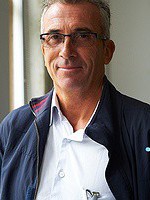abstract
The rheological behavior of mortars containing different dosages of superabsorbent polymer (SAP) and distinct water/binder (W/B) ratios was measured. In addition, mechanical properties, capillary index and porosity of samples with 0-0.9 wt.% SAP and 0.66-0.82 water/binder weight ratios were also evaluated at 28 days, using design of experiments (DoE). In general, the yield stress was the rheological parameter that better expressed the continuous absorption of water molecules persistence once the mechanical mixing was concluded. Spread on table and yield stress exhibited an opposite relationship described by a power correlation. Despite being prepared with additional water dosages, SAP-containing mortars showed a capillary index below those estimated for SAP-free mortars, while the flexural strength results remained invariable. As expected, SAP increased up to 18% the moisture buffering capacity of the mortar, when compared to the reference sample (0 wt.% SAP). (C) 2015 Elsevier Ltd. All rights reserved.
keywords
CEMENT-BASED COMPOSITES; HARDENED PROPERTIES; AUTOGENOUS SHRINKAGE; AMBIENT MOISTURE; INDOOR AMBIENT; WATER; PERFORMANCE; NANO-SIO2; PARTICLES; RHEOLOGY
subject category
Construction & Building Technology; Engineering; Materials Science
authors
Senff, L; Modolo, RCE; Ascensao, G; Hotza, D; Ferreira, VM; Labrincha, JA
our authors
acknowledgements
The authors acknowledge the financial support of the Brazilian agency CNPq (National Council for Scientific and Technological Development).





